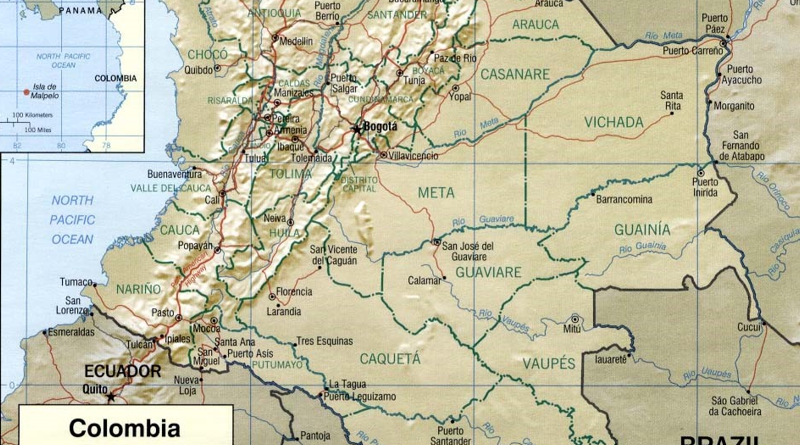IACSP Update: Security Situation in Colombia
Dr. Thomas A. Marks
Security situations evolve with bewildering speed and complexity, necessitating long-term commitment that is both correct and sustainable. The forces of the state play for the breaks, restoring stability to the extent that reformed order can address the societal contradictions which led to threat challenge. Therein, though, is the heart of the matter. Security, like money, never sleeps. Reform left still-born, and security shoved aside for other priorities, all but guarantees the return of disorder. This is the case with Colombia (see Figure 1 for all locations). From near-defeat to victory to problematic security situation, all have unfolded in several decades.
President Ivan Duque assumed office on 7 August 2018 to begin his four-year term (one re-election is provided in the amended constitution). It was during the presidencies of Andrés Pastrana (1998-2002) and Álvaro Uribe (2002-2010) that the security situation in Colombia was most problematic, with terrorism and guerrilla warfare being accompanied by military combat between government forces and large regularized units of insurgents. The main insurgent groups locked in competition for local control not only with the government but with each other and, perhaps more importantly for this case, with the so-called paramilitaries (autodefenses), autonomous self-defense groups which sprang up, originally, in particular areas (notably the Caribbean coast) but eventually spread throughout the ...

